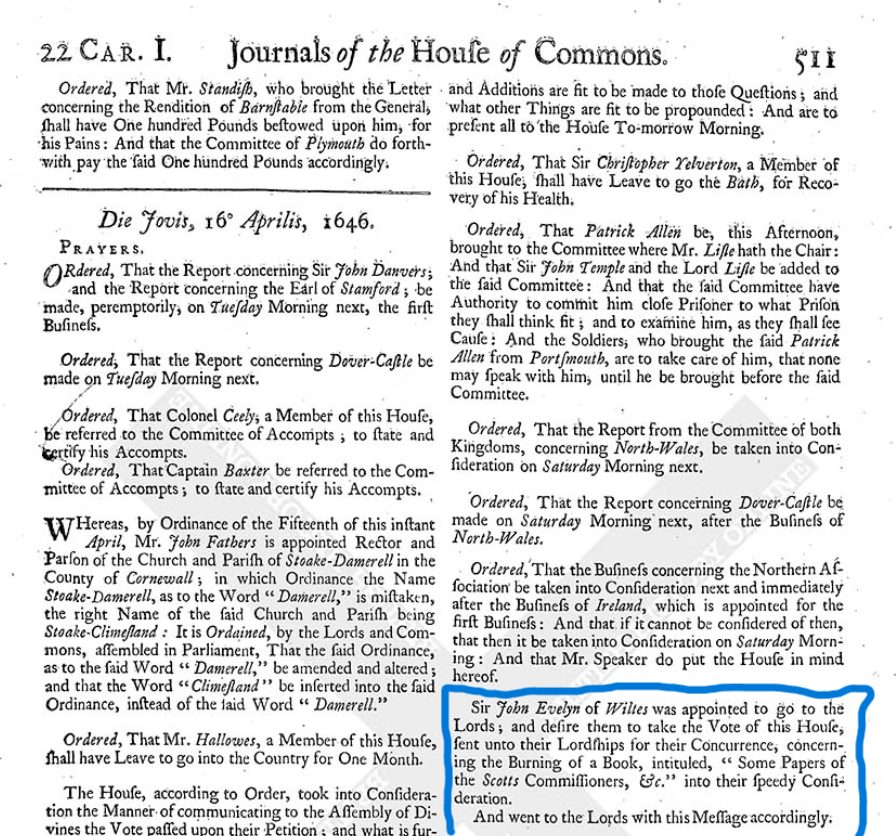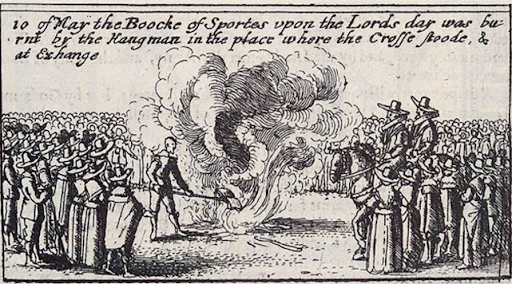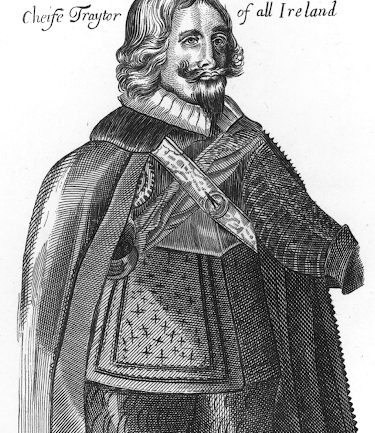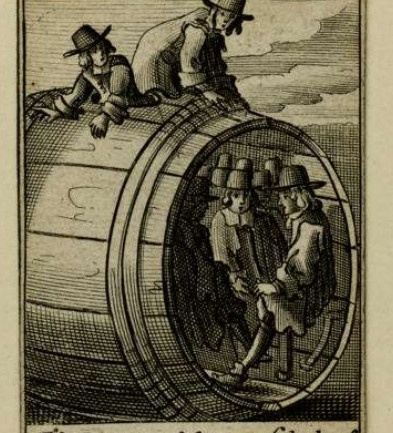[By Brendan Dooley]
Writings under attack! The Scots claim that the English are not living up to their obligations under the Solemn League and Covenant. The Parliamentarians object, switching the debate to one about the future of the monarchy, which they seem to endorse, subject to numerous conditions, whereas the Scots are evidently more determined to insist on the extirpation of popery, regarded as equivalent to High Church Protestantism, as sustained by the monarchy.
The date is May 4, 1646, and Amerigo Salvetti takes notice:
| By order of the Chamber of the Commons in Parliament, some papers that these Scottish commissioners caused to be printed were burned by the public executioner last Wednesday, in which they declared that they had complied on their side with all the questions that obliged them under the covenant made with the English, and since they had received no payments or other signs of compliance, a matter which will aggravate these two nations all the more and will finally force them to break them, the said Commons Chamber sent out a declaration to show the world that it does not wish to alter the Monarchy or the fundamental laws of the Kingdom, but only to ensure that the King is not able to take full control of these, and since this declaration is somewhat ambiguous, and many have attributed to it a double meaning, it has not generally given that satisfaction which was believed was necessary. | Per ordine della Camera Comune del Parlamento fu mercoledi passato abbrugiato, per mano del boia, alcuni papelli che questi commissari Scozzesi havevano fatto stampare, che dichiaravano d’havere complito dalla lor’ parte a tutto quesi ch’erono obbligato per il contratto di convenzione fatta con l’Inglesi, e come da questi non erano stati corrisposti ne pagamenti ne in altre cose, materia che inagrira tanto piu queste due nazioni e le forzera infine a romperli, La detta Camera Comune ha mandato fuori una dichiarazione per fare vedere al mondo che non desidera di alterare la Monarchia ne le leggi fondamentali del Regno, ma si bene d’assigurarsi solamente che non possi essere nel potere del Re di farsi arbitrario d’esse, e perche simile dichiarazione è alquanto anfibologica non dà generalmente quella sodisfazione che si credette che dovesse fare per il doppio senso che molti li danno |
The writings appear to be these, noted at the bottom on the right-hand side in the Journal of the House of Commons as having been discussed in the House, whereupon John Evelyn (not to be confused with the homonymous diarist) is entrusted with bringing the Commons’ views to the House of Lords:

‘House of Commons Journal Volume 4: 16 April 1646’, in Journal of the House of Commons: Volume 4, 1644-1646 (London, 1802), pp. 511-512. British History Online http://www.british-history.ac.uk/commons-jrnl/vol4/pp511-512 [accessed 31 May 2023].
Whatever may have been the intentions of the Scots and the reactions of the English Parliament, the issue of legislating about writings had been addressed only two years before by John Milton, in his famous Areopagitica; A speech of Mr. John Milton for the Liberty of Unlicenc’d Printing, to the Parlament of England in 1644, to protest the Parliament’s passing of the Licencing Act of 1643. To no avail. Prepublication licencing, along with penalties for irregularities, continued to be the norm, until the law finally lapsed in 1695.
A book burning on 10 May 1643, from a contemporary illustration:
SUGGESTED READING
Mario Infelise, I libri proibiti, da Gutenberg all’Encyclopédie, 2nd ed., Bari, Laterza, 2013




